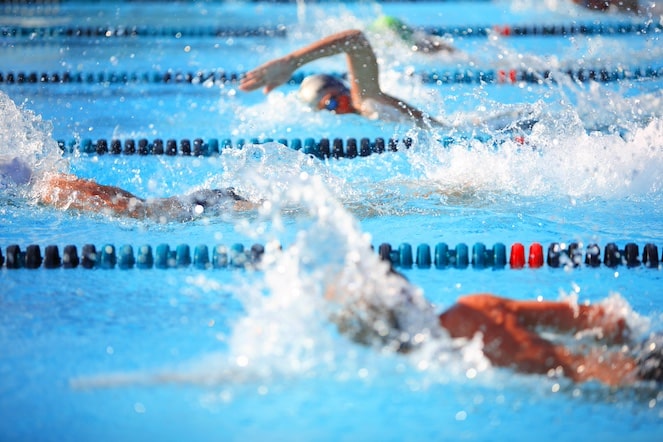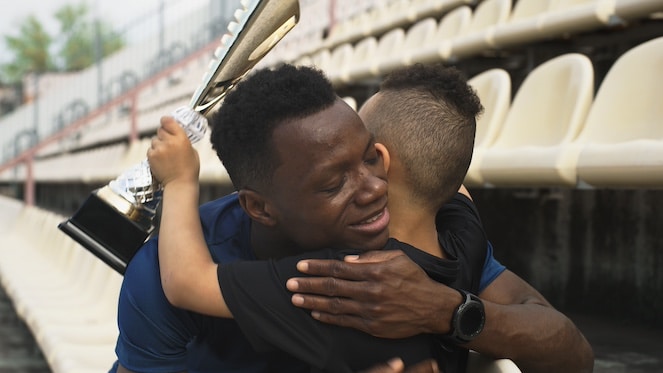Navigating Teenage Pressures: A Guide for Parents of Student Athletes
As your children navigate their high school years, especially as athletes, they face a myriad of challenges that can often lead to stress. From academic pressures to the demands of sports and social life, to the drive to be recruited for a college team, teenagers today encounter stressors that can impact their overall well-being. As parents, understanding these causes and knowing how to support your athletes through these pressures is crucial. We’ve provided a guide to help you navigate this journey with your high school athletes.
Understanding Causes of Teenage Pressure
The first step is to understand where this pressure comes from. Here is a short list, and by no means exhaustive.
Academic Demands
Academic pressure can come from a myriad of factors, including the need to get good grades to enter a prestigious university, get a college scholarship, parental pressure, the fear of failure. Test anxiety, peer pressure, and comparing to others, and demands put to students from teachers can sometimes add to the academic pressures and a feeling of inadequacy.
Sports Performance
The pressure to perform well in their chosen sport, whether it’s to secure a spot on the team, win games, achieve personal goals, or get recruited by college coaches, can contribute significantly to stress.
Many parents feel that pushing their student athletes to be the best they can be is helping the athlete reach their goals. In some cases this may work, but in many cases, this backfires. One parent tells her story about when her daughter’s pressure became too much.

Social Pressures
Peer relationships, fitting in, and social expectations can be sources of stress. High school athletes may feel pressure to maintain friendships, navigate social dynamics, and manage conflicts.The ideology of the athlete being immune to hardship and pressure exists throughout their high school years, yet studies show that their mental health is at risk.
Time Management
Juggling practices, games, schoolwork, and possibly part-time jobs can leave little time for relaxation and downtime, adding to feelings of stress, burnout, and exhaustion. It’s hard to find a balance, which can lead to procrastination, loss of focus, and ultimately rushing through assignments, decisions, and preparation for competitions.
Without a game-plan, many student athletes fall behind, or worse fail courses.
College and Future Plans
Concerns about college admissions, scholarships, and future career paths can loom large for high school athletes, especially if they hope to continue their athletic careers at the collegiate level.
It is harder to be recruited today with the additions of Name, Image, and Likeness (NIL) and the college transfer portal. Without a plan in place, the pressure continues to build throughout the high school career.
Many student athletes and parents become frustrated and overwhelmed by the college recruiting process, which only leads to more pressure.

How to Support Your Athletes
What can you do to help your student athletes work through these pressures and the stress that accompanies them?
Create Open Communication
Create a supportive environment where your child feels comfortable discussing their concerns and challenges. Listen actively and validate their feelings without judgment.You will encounter many opportunities, throughout your student athlete’s sports experience, where the communication you choose plays out in the student athlete’s behaviors. You have choices.
Encourage Balance
Help your child prioritize tasks and manage their time effectively. Encourage breaks and relaxation to prevent burnout. They may forget that they need the breaks, but you can encourage it through fun, family time and vacations away from sport.
Set Realistic Expectations
Discuss realistic goals together, both in academics and sports. Emphasize effort and improvement rather than solely focusing on outcomes. The entire sports experience, when keeping a bird’s eye view, brings growth, learning, and continued fun to the sport they love.
Teach Coping Strategies
Help your child develop healthy coping mechanisms such as deep breathing, mindfulness, or engaging in hobbies they enjoy.
Encourage them to eat healthy and get enough sleep. Modeling this behavior will help demonstrate your priorities and coping mechanisms. Your leadership in this area can truly make a difference with your child’s longevity in sport.

Seek Support When Needed
Be aware of signs of excessive stress or anxiety. If necessary, seek guidance from school counselors, coaches, or mental health professionals. Some of these organizations are listed below.
Start the college recruiting process early and find a professional resource and guide, like Find My Team, to help organize your student athlete’s college recruiting process and journey into college. An early start, and a game plan, make all the difference.
Resources for Parents
- American Psychological Association (APA) –
- National Alliance on Mental Illness (NAMI) – Provides information on mental health conditions and resources for parents:
- HealthyChildren.org – Provides guidance on various aspects of child development, including managing stress.
- The Child Mind Institute – Offers insights and resources on mental health for children and adolescents.
- Your Local School District – Often provides resources such as counseling services and workshops for parents on teenage stress and mental health.
Conclusion
Navigating teenage stress as a high school athlete can be challenging, but with your support and guidance, your student athlete can develop resilience and effective coping strategies. By understanding the causes of stress and actively supporting your child through these pressures, you can help them thrive both academically, athletically, and culturally, while maintaining their overall well-being.
Remember, every child is different, and every recruiting journey has a different path, so be patient and adaptable in your approach. Together, we can empower our young athletes to manage stress and enjoy a fulfilling high school experience.For more information, and guidance, visit our website at Find My Team.